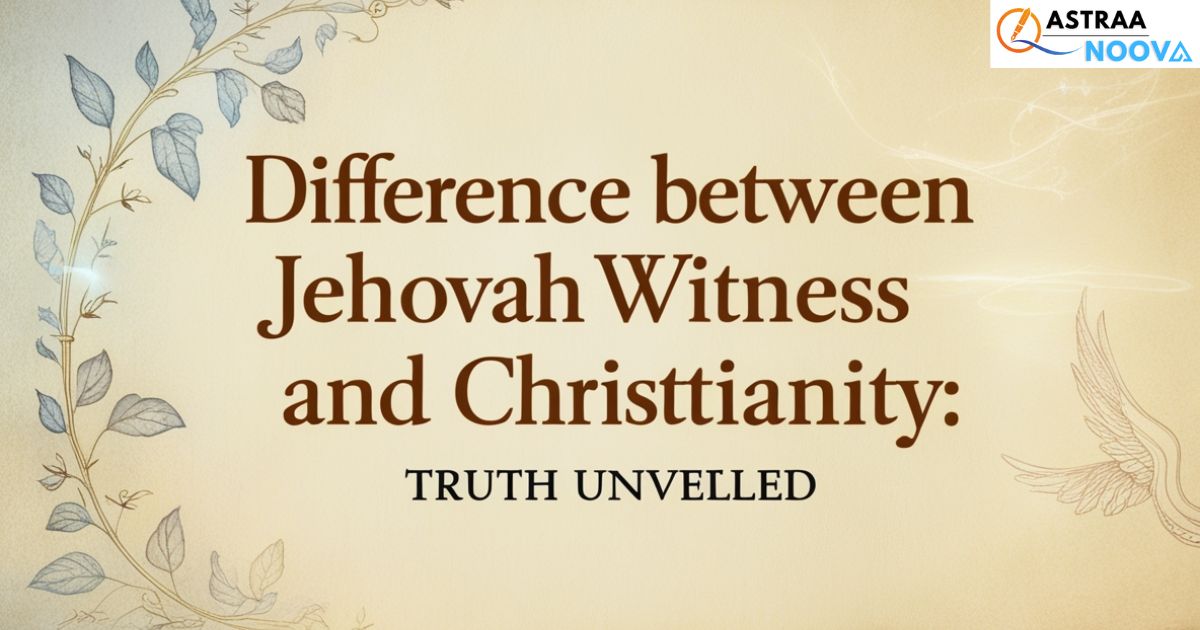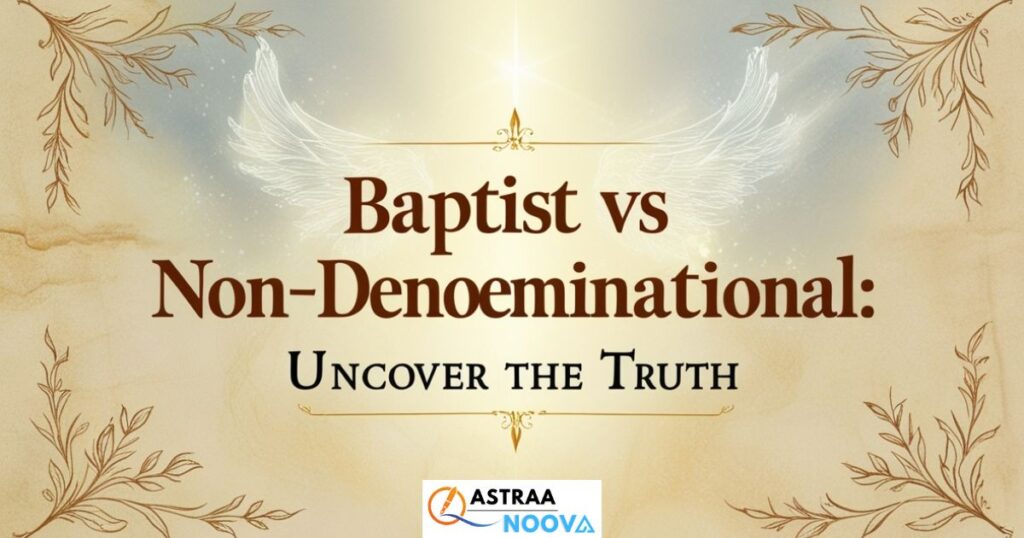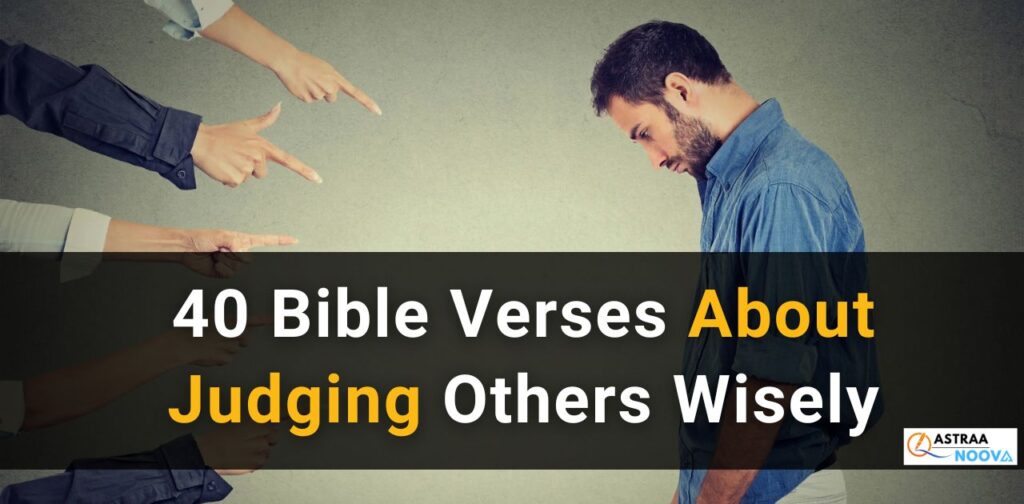When exploring the diverse landscape of religious beliefs, many people wonder about the distinctions between Jehovah’s Witnesses and mainstream Christianity. These two faith systems, while sharing some common roots, have significant differences in their core beliefs, practices, and interpretations of scripture.
What are the core beliefs of Jehovah’s Witnesses and how do they differ from Christianity?
At the heart of Jehovah’s Witnesses beliefs lies their devotion to Jehovah as the one true God. They reject the traditional doctrine of the Trinity, viewing Jesus as a created being rather than part of a triune godhead. This stands in stark contrast to mainstream Christian theology, which upholds the belief in God as three persons: the Father, Son, and Holy Spirit.
The Bible serves as the foundation for both faiths, but with notable differences in interpretation. Jehovah’s Witnesses use their own translation, the New World Translation, which has sparked debate among biblical scholars. For instance, their rendering of John 1:1 differs significantly from traditional translations, reflecting their view of Jesus as subordinate to Jehovah.
A distinctive aspect of Jehovah’s Witnesses practice is their abstention from celebrating holidays like Christmas and Easter, which they associate with pagan origins. Traditional Christian denominations, however, embrace these celebrations as meaningful commemorations of Jesus’s birth and resurrection.
How do Jehovah’s Witnesses view salvation compared to Christianity?
The path to salvation represents one of the most significant theological differences between these faiths. Jehovah’s Witnesses embrace a works-based salvation system, where eternal life depends on active participation in religious duties and strict adherence to moral guidelines. This includes regular engagement in door-to-door preaching and faithful attendance at congregation meetings.
Traditional Christianity, by contrast, emphasizes salvation through grace and faith alone. This belief stems from passages like Ephesians 2:8-9, which states that salvation is a gift from God, not earned through human effort. Christians believe that Jesus’s death and resurrection provide the sole basis for salvation, accessible to all who place their faith in Him.
Another distinctive aspect of Jehovah’s Witnesses belief is their teaching about the 144,000 chosen ones who will rule with Christ in heaven. They maintain that most faithful followers will live eternally on a paradise earth rather than in heaven. This differs markedly from mainstream Christian teaching about the afterlife, which generally promises heavenly existence to all believers.
How do Jehovah’s Witnesses and Christians differ in their views on the end times and the afterlife?
Understanding of end times prophecy varies significantly between these faiths. Jehovah’s Witnesses hold a unique interpretation of Armageddon and the world’s end. They teach that the Second Coming of Christ occurred invisibly in 1914, marking the beginning of the last days. They anticipate a final conflict where Jehovah will destroy the current world system.
The concept of hell and eternal punishment represents another major theological divide. Jehovah’s Witnesses reject the idea of eternal torment, teaching instead that the wicked face complete annihilation. They don’t accept the doctrine of an immortal soul, believing that consciousness ends at death unless God chooses to resurrect an individual.
Traditional Christianity maintains different views about these matters. Most denominations teach that Jesus’s return remains future and will be visible to all. They typically believe in the existence of hell as a place of conscious eternal separation from God, though interpretations of its nature vary among denominations.
How do Jehovah’s Witnesses and Christians differ in their worship practices?
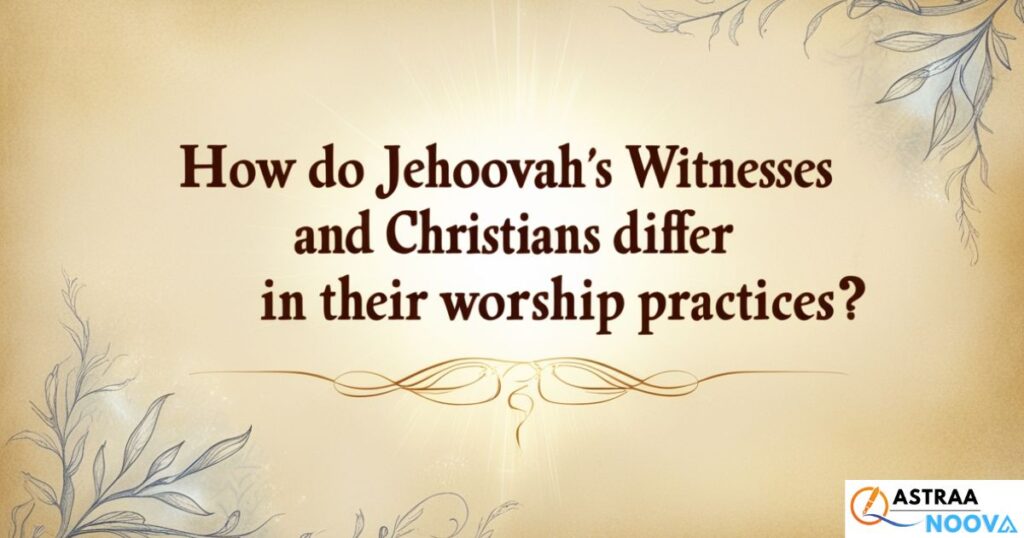
The structure and style of worship reveal fundamental differences between these faiths. Jehovah’s Witnesses gather in simple buildings called Kingdom Halls, which reflect their focus on practical worship rather than ornate religious architecture. These meetings emphasize Bible study and theological discussion rather than traditional ceremonial worship.
Traditional Christian denominations typically incorporate baptism and communion as essential sacraments in their worship services. While Jehovah’s Witnesses practice baptism, they view the Lord’s Evening Meal (their version of communion) differently, celebrating it once yearly with only those who believe they are part of the 144,000 partaking of the elements.
An important distinction lies in their approach to religious holidays and celebrations. Jehovah’s Witnesses abstain from celebrating Christmas, Easter, and other holidays due to their perceived pagan origins. They also maintain strict political neutrality, refusing to salute flags or participate in national ceremonies. Most Christian denominations, however, embrace these celebrations as opportunities to honor their faith while allowing individual conscience regarding political participation.
Read Also >> Where Was Jesus Crucified? Unveiling the Sacred
Jesus Crucifixion Site
How do Jehovah’s Witnesses and Christians differ in their understanding of Jesus Christ?
The identity and nature of Jesus represent perhaps the most profound theological difference between these faiths. Jehovah’s Witnesses teach that Jesus is actually Michael the archangel in human form, the first and greatest of Jehovah’s created beings. This understanding stems from their interpretation of various biblical passages and their rejection of the Trinity doctrine.
Christian theology, supported by verses like John 10:30 (“I and the Father are one”), maintains that Jesus is fully divine and equal with God the Father. The teachings of the Apostle Paul and other New Testament writers emphasize Christ’s deity and His eternal existence as part of the Trinity. This fundamental difference shapes how each group approaches worship, prayer, and spiritual life.
Both faiths recognize Jesus’s crucial role in salvation, but interpret it differently. Jehovah’s Witnesses view His death as a “ransom sacrifice” that perfectly corresponds to what Adam lost. Traditional Christianity sees Christ’s sacrifice as the complete atonement for humanity’s sins, sufficient for all who believe.
How do Jehovah’s Witnesses and Christians differ in their evangelism and outreach efforts?
The approach to spreading religious teachings marks another significant distinction between these faiths. Jehovah’s Witnesses are widely recognized for their systematic door-to-door preaching efforts, viewing this as a crucial part of their religious service. They distribute publications like The Watchtower and Awake! magazines, using these tools to share their interpretation of biblical teachings.
This organized approach stems from their understanding of the Great Commission found in Matthew 28:19-20. They maintain detailed records of their preaching work and often return to follow up with interested individuals. Their members receive thorough training in presenting their beliefs and addressing common questions or objections.
Traditional Christian denominations employ varied evangelism techniques, from personal relationships and community service to large-scale events and missions. While some Christians engage in door-to-door evangelism, most focus on building relationships within their communities and sharing their faith through natural connections and conversations.
The Role of Religious Literature and Biblical Interpretation
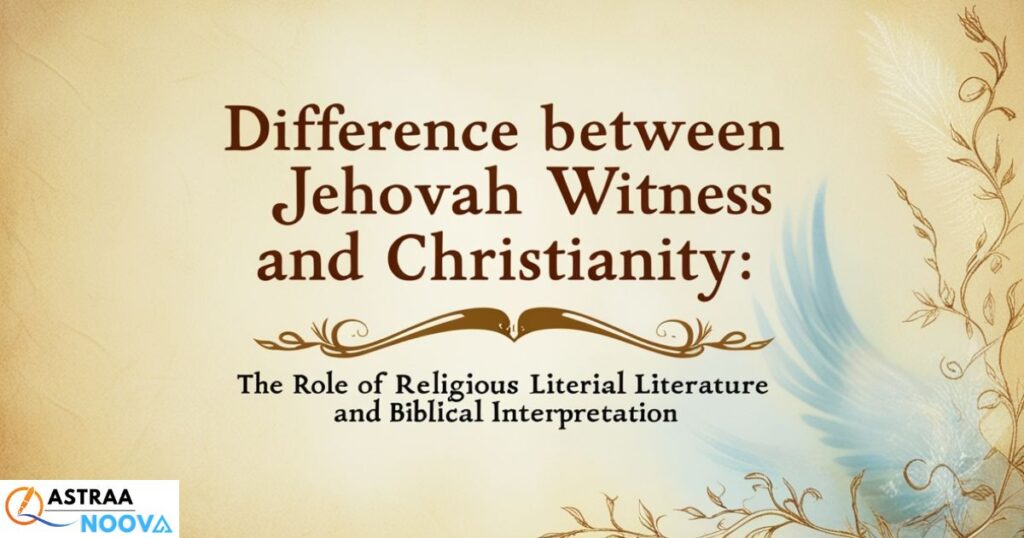
The use and interpretation of religious texts reveal another layer of distinction. Jehovah’s Witnesses rely heavily on the New World Translation of the Bible, along with publications from the Watchtower Society. These materials provide their members with consistent interpretations and teachings.
Traditional Christian denominations typically use various Bible translations and encourage individual study and interpretation, guided by church tradition and scholarly resources. This approach often leads to a broader range of theological perspectives within Christianity, while Jehovah’s Witnesses maintain more uniformity in their biblical understanding.
Views on Interfaith Relations and Religious Authority
Jehovah’s Witnesses maintain strict boundaries with other religious groups, viewing themselves as the only true faith. They typically avoid interfaith dialogue or cooperation with other religious organizations, seeing this as compromise with false religion.
Most Christian denominations show varying degrees of openness to interfaith dialogue and cooperation, while maintaining their distinct doctrinal positions. They often work together on social issues and humanitarian efforts, despite theological differences.
The Impact of Religious Practices on Daily Life
The influence of religious beliefs extends deeply into everyday decisions and lifestyle choices. Jehovah’s Witnesses follow strict moral guidelines that affect their social interactions, medical choices, and professional lives. Their commitment to political neutrality means they typically abstain from voting, military service, and national ceremonies.
Most Christian denominations allow more individual discretion in applying religious principles to daily life. While maintaining strong moral standards, they generally permit greater flexibility in areas like entertainment choices, medical decisions, and civic participation. This reflects their different understanding of Christian liberty and conscience.
Understanding Religious Holidays and Celebrations
The approach to celebrations reveals another significant contrast. Jehovah’s Witnesses reject not only religious holidays but also secular celebrations like birthdays, viewing them as having pagan origins or promoting self-worship. This stance sets them apart in many social situations and workplace environments.
Traditional Christianity generally embraces both religious and secular celebrations, seeing them as opportunities for fellowship and joy. While some Christian denominations may have specific guidelines about certain celebrations, most view these occasions as compatible with their faith when celebrated appropriately.
Conclusion
The differences between Jehovah’s Witnesses and mainstream Christianity run deep, touching every aspect of faith and practice. From their understanding of God and Jesus Christ to their approaches to salvation, worship, and daily life, these faiths represent distinct theological traditions. While both groups base their beliefs on the Bible, their interpretations and applications vary significantly.
Understanding these differences helps foster respectful dialogue and clearer communication between these religious communities. It’s important to note that both faiths are deeply committed to their beliefs and seek to honor God according to their understanding of biblical truth. Whether discussing the nature of salvation, the concept of the Trinity, or approaches to evangelism, recognizing these distinctions helps avoid misunderstandings while promoting meaningful conversations about faith.
FAQ’s About Jehovah’s Witnesses and Christianity
What is the main difference between Christianity and Jehovah’s Witnesses?
The fundamental difference lies in their understanding of God’s nature. Christians believe in the Trinity (God as Father, Son, and Holy Spirit), while Jehovah’s Witnesses believe Jehovah is the only true God and Jesus is his first creation, not God himself.
What do Jehovah’s Witnesses believe differently than Christians?
Jehovah’s Witnesses differ from Christians in several key beliefs: they reject the Trinity doctrine, believe only 144,000 people go to heaven, don’t celebrate holidays due to pagan origins, and view salvation as requiring works rather than faith alone.
Do Jehovah’s Witnesses use the same Bible as Christians?
Jehovah’s Witnesses use their own translation called the New World Translation, which differs from traditional Christian Bibles in key passages, particularly those relating to Jesus’s deity and the nature of God.
Do Jehovah’s Witnesses believe God and Jesus are the same?
No, Jehovah’s Witnesses believe Jesus is a created being, specifically Michael the Archangel in human form, while Christians believe Jesus is God incarnate and part of the Trinity.
What do Christians believe that Jehovah’s Witnesses don’t?
Christians believe in the Trinity, eternal hell, salvation by grace through faith alone, and that all believers go to heaven. They also celebrate religious holidays and allow blood transfusions, which Jehovah’s Witnesses do not.
Do Jehovah’s Witnesses believe in life after death?
Jehovah’s Witnesses believe that 144,000 chosen ones will rule with Christ in heaven, while most faithful followers will live eternally on a paradise earth. They reject the concept of an immortal soul and eternal torment in hell.
What are the core beliefs of Jehovah’s Witnesses?
Core beliefs include: Jehovah as the only true God, Jesus as a created being, the importance of door-to-door preaching, rejection of holidays and blood transfusions, political neutrality, and the promise of paradise earth for most believers.
Why don’t Jehovah’s Witnesses believe that Jesus is God?
Jehovah’s Witnesses interpret biblical passages differently, believing verses like John 1:1 indicate Jesus was “a god” rather than God himself. They view Jesus as Jehovah’s first creation rather than being equal to God.
Read Also >> Key Differences Between Presbyterian and Christian Beliefs Explained

Multilingual faith educator exploring connections between language, spirituality, and dream symbolism.
